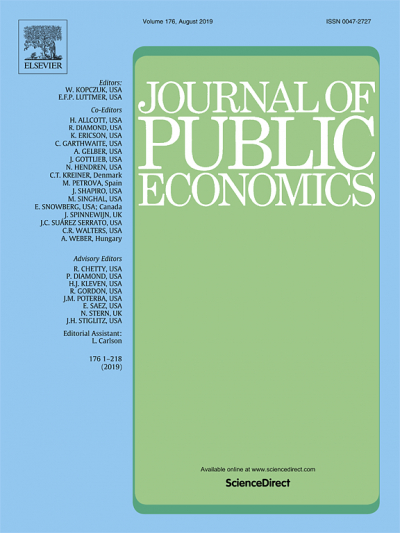Individual, Dictator, and Democratic punishment in public good games with perfect and imperfect observability
Authors
Ambrus, A; Greiner, BAbstract
In the context of repeated public good contribution games, we experimentally compare the institution of democratic punishment, where members of a group decide by majority voting whether to inflict punishment on another member, with individual peer-to-peer and dictatorial punishment institutions. Democratic punishment leads to more cooperation and higher average payoffs, both under perfect and imperfect monitoring of contributions. A comparison with dictatorial punishment suggests that the effect relative to traditional peer-to-peer punishment primarily works by curbing anti-social punishment and thereby establishing a closer connection between a member's contribution decision and whether subsequently being punished by others.
Citation
Ambrus, A., and B. Greiner. “Individual, Dictator, and Democratic punishment in public good games with perfect and imperfect observability.” Journal of Public Economics 178 (October 1, 2019). https://doi.org/10.1016/j.jpubeco.2019.104053.

